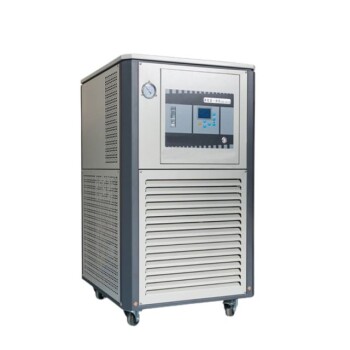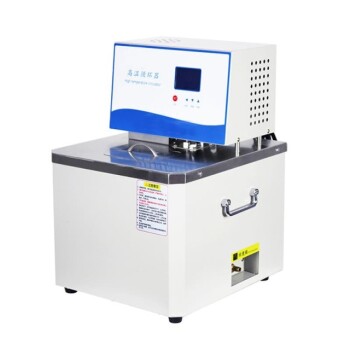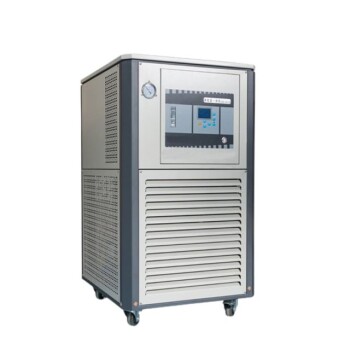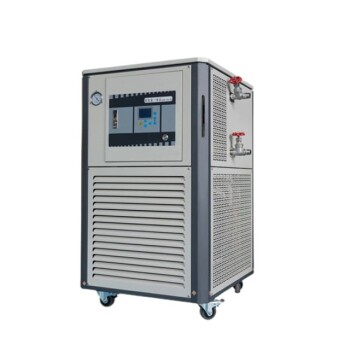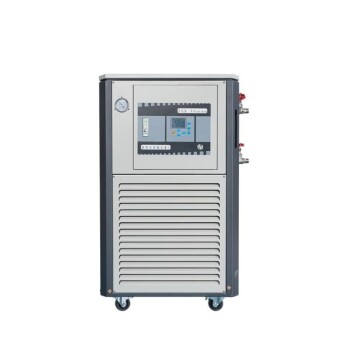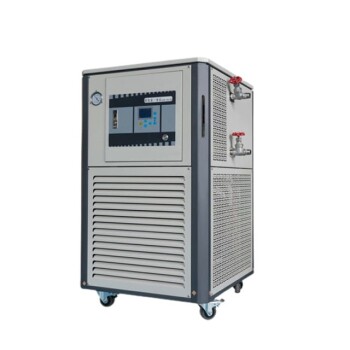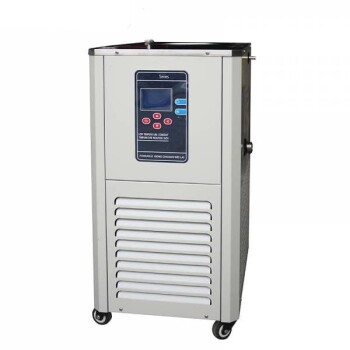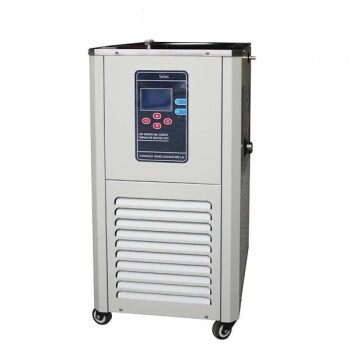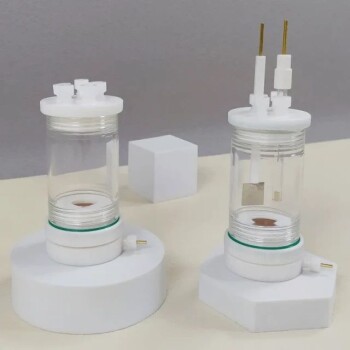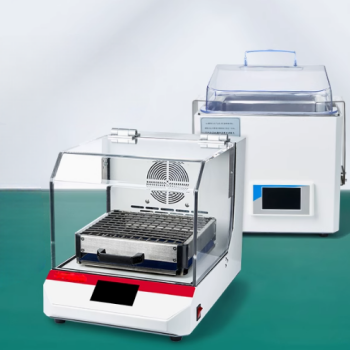The primary advantage of a laboratory water bath is its ability to provide gentle, uniform heating for sensitive samples. It uses a chamber of heated water to indirectly raise the temperature of samples, making it the ideal choice for biological materials or flammable liquids that cannot be exposed to the direct, concentrated heat of a hot plate. This method ensures consistent temperature control and sample integrity.
A water bath's core value lies in its use of water as a medium to transfer heat gently and evenly. This eliminates the dangerous "hot spots" created by direct heating methods, protecting sensitive biological and chemical samples from damage or ignition.
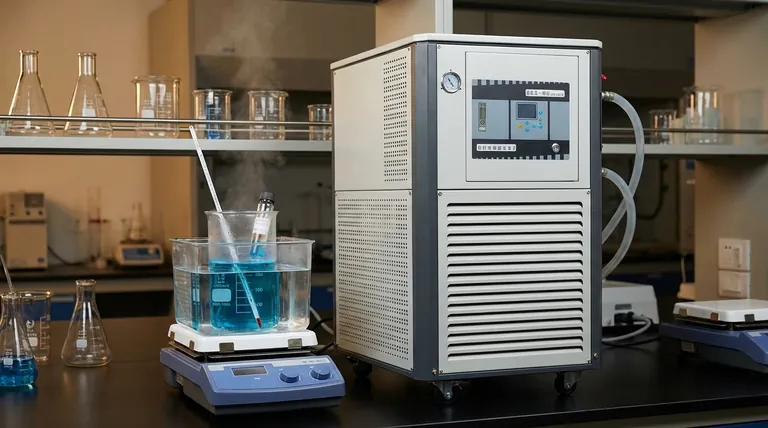
The Core Principle: Gentle and Uniform Heating
A water bath solves a fundamental problem in the lab: how to heat a sample evenly without destroying it. The properties of water make it a uniquely effective medium for this task.
Eliminating "Hot Spots"
Direct heat sources, like a hot plate, transfer energy unevenly, creating localized hot spots on the bottom of glassware. These areas of intense heat can easily denature proteins, degrade chemical compounds, or crack the container.
A water bath completely avoids this by surrounding the sample vessel with heated water. The heat is transferred uniformly from all directions, ensuring the entire sample reaches the target temperature consistently.
Protecting Sensitive Samples
Many laboratory samples are highly sensitive to temperature fluctuations. A water bath is essential for this work.
Biological materials, such as enzymes, cell cultures, and antibodies, can be irreversibly damaged (denatured) by overheating. The gentle, controlled heating of a water bath preserves their function.
Flammable liquids pose a significant safety risk. Using a water bath provides a heat source without a high-temperature surface or open flame, drastically reducing the risk of ignition.
Achieving Unmatched Temperature Stability
Water has a high specific heat capacity, meaning it can absorb and hold a lot of thermal energy. This "thermal mass" makes the water bath's temperature incredibly stable over long periods.
This stability is critical for experiments that require precise and consistent incubation for hours or even days.
Understanding the Trade-offs and Limitations
While highly advantageous, a water bath is not the solution for every heating task. Understanding its limitations is key to using it effectively.
Temperature Range
Standard water baths are limited by the boiling point of water and are typically only effective for temperatures between ambient and 99.9 °C. For higher temperatures, an oil bath or sand bath is required.
Potential for Contamination
The warm water environment is an ideal breeding ground for bacteria and algae. Without regular cleaning and the use of distilled water, the bath itself can become a source of contamination for your samples.
Using a cover is essential to prevent airborne contaminants from entering the bath. It also reduces evaporation, which is critical for maintaining temperature stability, especially above 60 °C.
Slower Heating and Cooling
The same thermal mass that provides excellent stability also means a water bath takes longer to heat up and cool down compared to a dry block heater. It is not well-suited for applications requiring rapid temperature changes.
Making the Right Choice for Your Goal
To determine if a water bath is the correct tool, consider your primary objective.
- If your primary focus is incubating sensitive biologicals: The water bath offers unparalleled gentle and uniform heating, preventing sample denaturation and ensuring experimental reproducibility.
- If your primary focus is safely heating flammable compounds: The water bath provides an ignition-free heat source, making it the safest and most reliable choice.
- If your primary focus is maintaining a precise temperature for a long duration: The high thermal mass of the water ensures exceptional stability that other methods cannot easily match.
Ultimately, a water bath is an indispensable laboratory tool for any application demanding precision, stability, and safety in sample heating.
Summary Table:
| Advantage | Key Benefit |
|---|---|
| Gentle & Uniform Heating | Eliminates hot spots, protects sensitive samples like enzymes and cell cultures. |
| Enhanced Safety | Provides an ignition-free heat source for flammable liquids. |
| Precise Temperature Stability | Maintains consistent temperatures for long-duration incubations. |
| Sample Integrity | Prevents denaturation and degradation of biological and chemical materials. |
Ready to enhance your lab's precision and safety?
A KINTEK water bath provides the gentle, uniform heating essential for incubating sensitive biological samples and safely handling flammable liquids. Our reliable equipment ensures the temperature stability and sample integrity your research demands.
Contact us today to find the perfect water bath solution for your laboratory needs. Let KINTEK, your trusted partner in lab equipment, help you achieve reproducible results.
Visual Guide
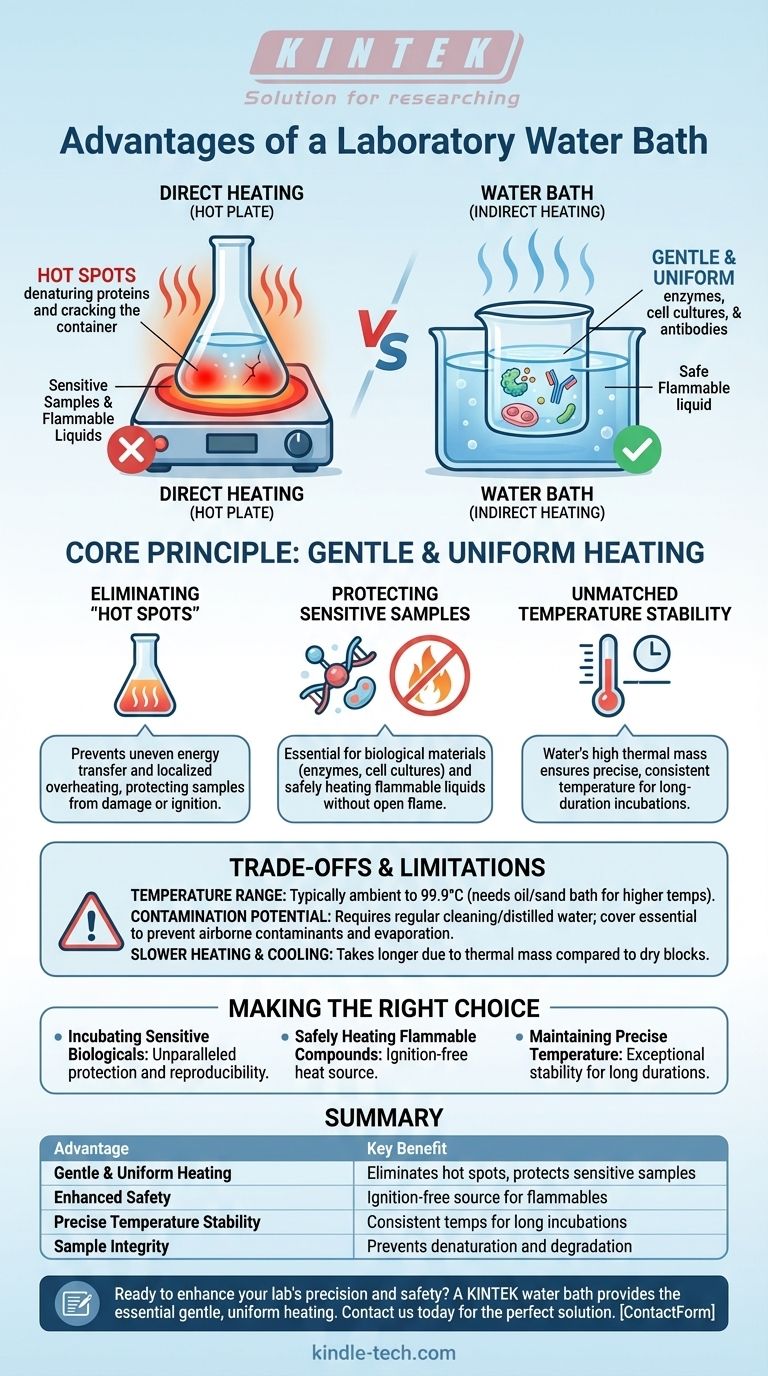
Related Products
- 20L Heating Chilling Circulator Cooling Water Bath Circulator for High and Low Temperature Constant Temperature Reaction
- High Temperature Constant Temperature Heating Circulator Water Bath Chiller Circulator for Reaction Bath
- 30L Heating Chilling Circulator Cooling Water Bath Circulator for High and Low Temperature Constant Temperature Reaction
- 50L Heating Chilling Circulator Cooling Water Bath Circulator for High and Low Temperature Constant Temperature Reaction
- 10L Heating Chilling Circulator Cooling Water Bath Circulator for High and Low Temperature Constant Temperature Reaction
People Also Ask
- What are 3 advantages of biomass? Unlock Renewable, Reliable Power & Waste Reduction
- Why KBr is used as reference standard in FTIR? Unlock Clear, Accurate Solid Sample Analysis
- Is induction more efficient than resistance? Unlock Faster Cooking with Up to 90% Energy Efficiency
- What are the key differences between incineration and gasification? Explore Waste Management Solutions
- How is a sample analysis done in FTIR? A Step-by-Step Guide to Reliable Results
- What is the unit of thickness of thin film? Mastering Nanometer, Micrometer, and Angstrom Scales
- How much does a biochar production facility cost? From $100k to $10M+ for Your Project
- What is difference between sinter and pellet? Optimize Your Blast Furnace with the Right Agglomeration Choice
